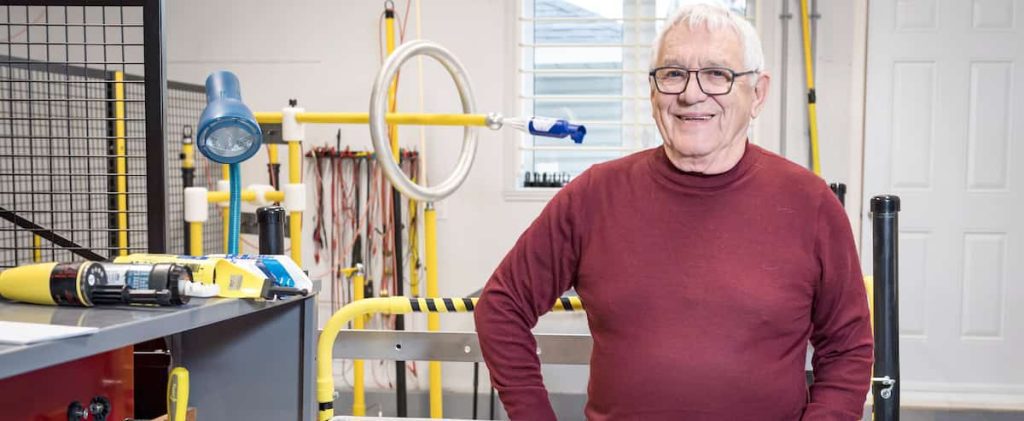
One of the founders of the Institut de Recherche d’Hydro-Québec (IREQ), 80 years old and retired, today designs and tests his equipment from Professor Tornesol’s laboratory in his garage in McMasterville. Tintin.
“For me, Hydro-Québec is proud to sign a contract with me. It’s the loop,” laughs NDE Lab’s CEO Guy Ross, who has fond memories of his time there.
“My goal is not to get rich, but to take on scientific challenges,” the hydro retiree continues, never losing a smile.
From the street, the bungalow looks like many in Quebec, but when you enter it, after the big black chairs, you see a laboratory at the end of the hall with all kinds of huge instruments.
With its silver ring and yellow light that glows when current flows, the futuristic equipment looks like Professor Tournesol’s lab.
From the height of his 80 years, Guy Ross doesn’t take himself too seriously. One tells the story of a beloved son who modestly unveils his life.
Eternal top in class
It all started for him in 1963. At that time, the young man was in the first class at the Rimouski Institute of Electronics. Hydro-Québec wasted no time and hired him.
Six years later, at the age of 26, he became one of the founders of the Hydro-Québec Research Institute (IREQ), which aimed to be the cream of Quebec innovation.
“I was responsible for purchasing equipment for the entire center,” the man recalled.
But in 1987, restructuring convinced him to retire. He is 54 years old.
New machines
An acquaintance approached him to ask him to work on a tool.
“It suits me because it’s a niche that we’ve never worked on at IREC,” he laughs.
After two years of improving his algorithms, the inventor manages to create a new generation of devices capable of measuring the voltage of a distribution line more accurately and simply than before.
Over the years, Guy Ross has been constantly improving his instrument.
One day, the Brazilians tried to copy it, but without success.
Today, his jewelry sells for $1,000 each, and no one has yet been able to unravel the secret of its accuracy.
When asked if he has patents to protect his secret, he has his own answer, he bursts out laughing.
“A patent is telling the Chinese and the Japanese how to do it. In a patent, you can’t say everything, but you put them on the right track,” he concluded.





More Stories
Sportswear: Lolle acquires Louis Garneau Sports
REM is still innovative enough to foot the bill
A trip to the restaurant with no regrets for these customers